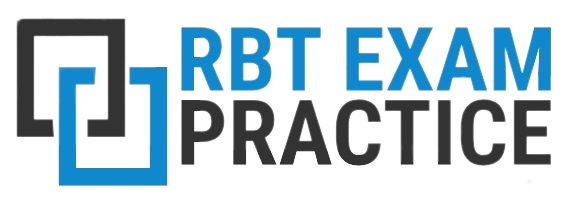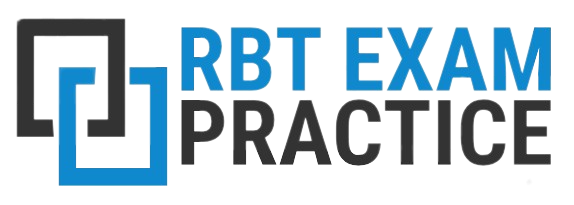The work of a Registered Behavior Technician (RBT) is applicable in various fields of everyday life, including the clinical setting. RBT professionals who work with children with autism are trained in Applied Behavior Analytics and know how to connect this with the needs of ASD.
RBT professionals find practical situations to implement behavior development solutions and encourage young children to create alternative thinking and behavior patterns. They also aid in interrelational relationships to facilitate social simulation of children with ASD.
Contents
- 1 The Autism Partnership Foundation: Everything To Know
- 2 What is RBT for Persons with Autism?
- 3 RBT Responsibilities and Standards: Behavioral Science In Autism
- 4 RBT Ethical Standards For Individuals with ASD
- 5 How To Prepare as an Autism Behavioral Technician
- 6 RBT Exam: A Key Step in Certification
- 7 Final Verdict
The Autism Partnership Foundation: Everything To Know
This non-profit organization is dedicated to developing the professional services and technology available for children diagnosed with ASD today.
On the flip side, it also looks at the accessibility of reasonable quality assistance in behavior-based treatment. Violet promotes social assimilation for individuals with ASD; it also raises its voice against unrealistic, rigid social expectations, prejudices, and discrimination.
What is RBT for Persons with Autism?
According to the Autism Partnership Foundation, a Registered Behavior Technician (RBT) is a nationally recognized paraprofessional certification’ in the field of behavioral sciences and analysis. APF recognizes that RBT professionals work under the supervision of BCBAs and BCaBAs and implement the plans made by them. Further, they have one more crucial task – collecting data and maintaining detailed progress reports.
Therefore, an RBT working in the field of Autism Spectrum Disorder must operate to handle intense episodes, adolescent mood swings, changing ideals, goals, etc, in their clients. Further, they must be well-versed in behavior growth techniques that children of different age groups can safely use.
RBT Responsibilities and Standards: Behavioral Science In Autism
Autism Partnership Foundation has outlined a detailed set of standardized guidelines for RBT professionals working with individuals who have autism.
- RBT applicants must complete a minimum 40-hour training program consisting of 17 modules of instructional content. This is an independent program inspired partially by the BACB.
- Students are trained in the general responsibilities of an RBT from a clinical perspective. They have to understand the basics of Abnormal Psychology with a social focus on Autism Spectrum Disorder.
- The training period must last between 5 days to 180 days.
- Post the completion of RBT training, professionals must apply for additional documentation from BACB to start practicing.
- Additionally, APF expects RBT applicants to possess a practical understanding and capacity to work in child-friendly settings.
- RBT professionals must be well-versed in the ethical guidelines for the treatment and behavior therapy of minors.
RBT Ethical Standards For Individuals with ASD
When RBT professionals work with children and adults with ASD, they are interacting with a vulnerable population that is open to learning, changing, and understanding the world through their counsel.
Parents and guardians who want to assess the work of an RBT professional must ensure the general ethical standards of this field are upheld under any condition.
Respecting Client Boundaries and Privacy
Many children struggle with privacy and safety issues within the mental health care industry. An RBT professional must understand the personal needs of the child and treat them just like any other client. Behavior technicians must work hard to create an inviting, trustable environment for all.
Selecting Evidence-based Techniques
Behavior technicians should not rely on subjective, intuitive techniques. Instead, the focus must be on the latest research-backed tools and methods that make behavioral growth systematic, seamless, and holistic.
Similarly, standardized measures of data collection and analysis should be followed and the results should be used for any future decisions.
Taking Accountability for Negative Outcomes
Taking accountability does not mean taking the blame for every situation; it simply means understanding where the RBT made a mistake in their dealings with the client and how it can be resolved. We need to recognize our limitations to provide substantial help to our clients.
Reporting Ethical Dilemmas and Violations
RBTs work with several other professionals like the BCBAs, social workers, psychiatrists, etc. We must call out, discuss, and report ethical issues to our supervisors. When violations happen, we must make sure the violators face the consequences.
How To Prepare as an Autism Behavioral Technician
A student preparing for the Registered Behavior Technician Initial Assessment in the field of ASD must be ready to take up several practical responsibilities on a day-to-day basis. For this, applicants must learn the following:
- Practice measurement techniques for routine data collection and report-making
- Understand how to implement age-appropriate behavior treatment plans for children with autism
- Learn how to assess physical, mental, and social developmental changes in children of various age groups
- Develop cultural sensitivity to understand the varying behavior patterns of children as well as diverse parenting styles
- Mastery of theoretical and competency areas, including behavior assessment, intervention, and implementation of behavior reduction procedures.
RBT Exam: A Key Step in Certification
The RBT Practice Exam is a necessary process of preparing for the actual RBT certification exam. This test assists applicants in practicing what they know about ABA concepts, ethics, and applied behavior intervention methods. The exam consists of questions regarding:
- Data collection and measurement of behavior
- Acquisition of skills and strategies to reduce behavior
- Professionalism and ethical standards
- Putting intervention plans into practice
Practicing a test can assist RBT applicants in the following ways: identifying areas of weakness, gaining test-taking confidence, and applying ABA principles in real-world settings.
Final Verdict
The Autism Partnership Foundation outlines several standards for Registered Behavior Technicians (RBTs), including ethical conduct, competency in implementing interventions and handling emergencies.
These standards ensure quality care for individuals with autism spectrum disorder while also maintaining their sense of self-efficacy and dignity. Adherence to RBT standards set by organizations like APF fosters effective treatment and supports positive outcomes.


